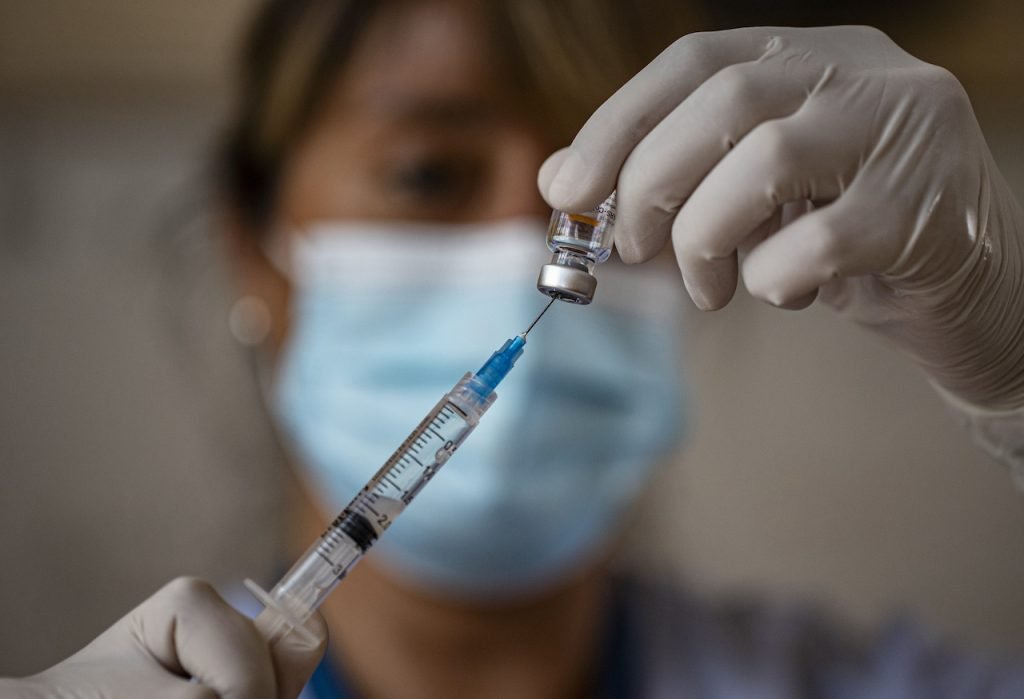
PARIS, Dec 3, 2021 (BSS/AFP) - The Covid-19 global vaccination campaign --
the largest in history -- began a year ago with Britain launching its drive
on December 8, 2020.
Now half the world's population has had at least one shot.
But with richer countries now administering third booster doses, many in
poorer ones are still waiting for their first jab.
These glaring inequities have come to dog the campaign with the emergence
of the Omicron variant, as have controversies over rare side effects and
opposition to mandatory vaccines.
Here is an overview of the year, based on an AFP vaccine database.
- One in two -
While the United Kingdom led the way in mass vaccination, Russia and China
had already started vaccinations, targeting specific cities and regions.
In the early days of its roll-out, the UK mainly used the
AstraZeneca/Oxford jab.
Many other richer countries followed suit in December -- the United States,
Canada and the United Arab Emirates on December 14, Saudi Arabia and Israel
in the days that followed and the European Union at the end of the month.
They mainly used the US-German mRNA messenger Pfizer-BioNTech jab.
One year on, 55 percent of the world's population -- 4.3 billion people --
has received at least one dose.
At least 44 percent, or 3.4 billion, are completely vaccinated, according
to an AFP count based on official sources. In all, 8.1 billion doses have
been administered around the world.
The 20 or so vaccines which are available have been developed in a record
time after the "novel coronavirus" first emerged in China in late 2019.
Apart from AstraZeneca and Pfizer, the most widely used are those developed
by the US giants Johnson & Johnson and Moderna, China's Sinopharm and
Sinovac, and Sputnik V from Russia's Gamaleya Institute.
- Poor lag behind -
Although vaccination campaigns were under way in most countries by June
2021, they are going at snail's pace in most poorer countries and in some
cases have been suspended altogether because they can't get doses.
The Covax mechanism, run by the World Health Organization, the Gavi
alliance and Cepi coalition, was aimed at guaranteeing an equitable access to
vaccines.
It made its first delivery in late February to Ghana.
But struggling to compete with rich countries which are prepared to pay
high prices, Covax has so far delivered just 591 million doses to 144
countries or territories, far short of its initial objective of two billion
doses in 2021.
To date, nine doses have been given per 100 inhabitants in countries
classified as low income by the World Bank.
The global average is 104 per 100 inhabitants and high-income countries
have managed 149.
Africa is the least vaccinated continent with 18 doses per 100 inhabitants.
- UAE leads the race -
Thirty-nine of the 50 most jabbed countries are rich, with the United Arab
Emirates leading the way.
It has already completely vaccinated nine out of 10 of its people.
Close behind are Portugal (87 percent), Singapore (86 percent), Qatar (85
percent), Chile and Malta (84 percent), Cuba (81 percent), South Korea and
Cambodia (80 percent).
The countries which fired the starting gun on the vaccination campaigns due
to their privileged access to vaccines are now lagging behind.
Britain has jabbed just 68 percent, Israel 67 percent and the US 60
percent.
- Eritrea and N.Korea last -
Burundi and the Democratic Republic of Congo are the least vaccinated
countries in the world, having jabbed less than 0.1 percent of their
populations.
Eritrea and North Korea are the only two who have not vaccinated at all.
- Boosters and shots for kids -
High income countries are way ahead among the some 80 nations which have
started to administer booster doses. These include almost all countries in
Europe, North America and the Gulf.
Most also vaccinate children aged from 12 to 17.
Some, like the US, Canada, Israel, Chile, the UAE, Cuba, Cambodia and
Venezuela are also vaccinating children under 12.